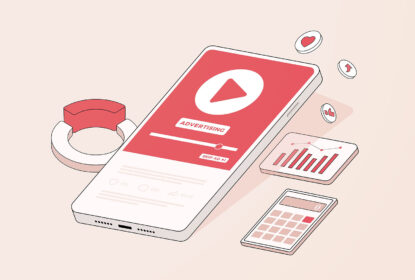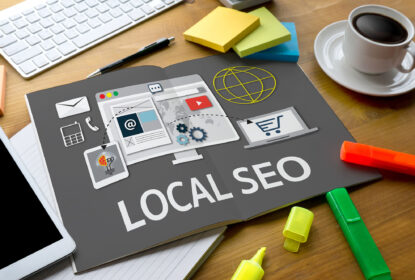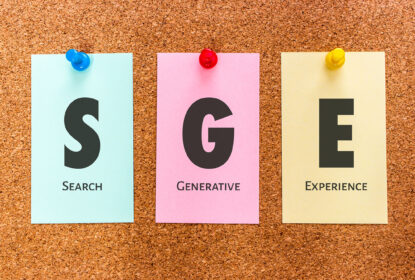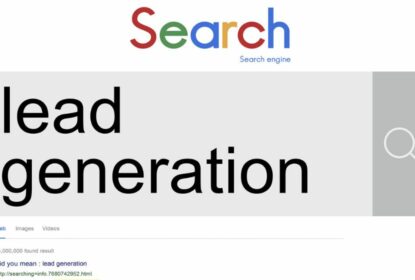When it comes to setting up your pay-per-click (PPC) campaign, pairing it with a custom landing page is essential as it will secure your campaign a high conversion rate. In this article, we will discuss why it’s vital to send paid traffic to a dedicated landing page instead of your website’s home page.
What is a Homepage?
For starters, let’s go over what a homepage is. Your homepage is the gateway to the rest of your website or the site you have chosen to send most of your inbound visitors. A great homepage is a catch-all for traffic. Its purpose can vary from your business model and the audience. On your website, every page addresses the different levels of product awareness.
Awareness, Intent, and Direction
Below is a rundown of the five stages of awareness:
- Unaware – The first stage where the prospect does not know they have a problem.
- Problem-Aware – This comes after something triggers a feeling of disconnect between desire and reality.
- Solution Aware – This stage is when a prospect identifies a way to solve their problem but is not aware of the options.
- Product-Aware – The prospect is aware of the options available to them and knows that the solution exists and what it can do.
- Most-Aware – The prospect is not only aware of the answer but is also aware of the top contender.
So, you might be asking what does awareness have to do with paid traffic? A couple of things:
- The awareness stage dictates where they are looking and how they got there, which is what we call intent.
- Knowing which stage the prospect is in allows you to write ads targeted to them.
Every page on your website address concerns at different levels of product awareness. The goal of an ad campaign is to move the prospect through these stages for a conversion.
So, which do you think is better to fulfill that goal? A home page or a landing page? If you said homepage, then continue reading. If you said landing page, then continue reading, as well.
Let’s Set A Scene:
You and your friends want to go on vacation. Unlike most people, I like to use a travel agent to book my travel. So, I book my plans through a booking agency. I tell them that I am looking for (such as a place with a cabin, mountains, and snow as my destination). The booking agent says, “I know just the place for you,” and send me in the right direction.
Fast forward, and my friends and I land and get off the plane, eventually calling the Lyft driver. When our driver picks us up, I am already thinking about that warm cabin fire and snowboarding. But instead of taking me to my cabin, the Lyft driver drops us off at the airport. They leave us there with no idea how to get where we want to go to do what we want to do.
See where I am going with this story?
The travel agent and the Lyft driver are your ads. You had an idea of what you wanted and where you wanted to go, but instead of them taking you directly there, you are left in a crowded terminal with no solution.
You might roam around a bit and stumble upon another flight. But odds are you’ll find someone who will take you to where you wanted to go in the first place. This stage is where a dedicated landing page comes into play.
What is a Landing Page?
A landing page is a standalone webpage or destination a consumer lands on based on what they search. This page is separate from your homepage or any other page on your site, and its purpose is to serve a single and focused goal, which is to convert visitors into leads. While your homepage and other pages encourage visitors to explore the rest of your site, your landing page offers a trade or a special offer in return for the contact information of the visitor.
Remember the story I mentioned earlier? The Travel Agent/Lyft driver sent me to a terminal (which is my website) and not to my destination (which is my landing page). When it comes to running a paid search campaign, you want to make sure that you are sending your traffic to a specific page that is relevant to what they want.
Deep Dive into Landing Pages
All landing pages follow both criteria’s below:
- There is a form that the visitor fills out to capture their information in exchange for your offer.
- The objective of the landing page is to convert visitors into leads.
There are seven different types of landing pages.
- Click through pages
- Lead capture pages
- Infomercial or long-form sales pages
- Viral landing pages
- Microsite pages
- Product detail pages
- The homepage
Landing Page Scenario

- A person views a call to action (CTA). The CTA tells the user what action to take and how to take it. This CTA leads the person to a landing page with a form to fill out.
- The person then fills out the form. Filling out the form converts them from a visitor into a lead.
- The form then stores the user’s information in a lead database.
- Then you market to leads based on the information provided.
The content on your landing page must be relevant to your ad. Here are a few distinct features of a landing page:
- Landing pages focus on a specific conversion action
- There is a minimal distraction
- Landing pages are highly targeted
- There is a clear call to action
Conclusion
As you can see, getting traffic on your homepage is good, but it is less likely to result in a conversion than if directed to a landing page. Homepages contain a lot of information and invite the prospect to navigate to different locations within the website. But if a prospect reaches your homepage with a specific goal in mind, they might be turned away to look at other services or products you offer first. A landing page eliminates that step by giving the user information they want.
Generally, your landing page is focused and very specific. Hopefully, the homepage draws visitors further into your website and presents them with everything your business offers. However, they may only be interested in one thing you offer. A landing page proposes a simple and clear call to action to that one thing a visitor wants.
If you’re directing traffic to your homepage, you are wasting your marketing budget. Focus on creating a dedicated landing page for your site. Contact ARYU Advertising and let us help you craft an effective and engaging landing page.










